If you’re in the market for a new travel credit card, you might be considering applying for the Royal Caribbean credit card. The Visa Signature credit card is offered from Bank of America and aimed at Royal Caribbean's most loyal cruisers.

Choosing the right travel credit card can be daunting. There are tons of options out there, each with their own pros and cons. Some have huge annual fees with a slew of benefits while others cost you nothing with $0 annual fees.
But, if you aren’t careful about choosing a credit card that fits your travel needs (and budget), you risk not getting your money’s worth. On the other hand, having a travel card that aligns with your spending and redemption preferences can be very rewarding and save you money over time.
The Royal Caribbean Visa Signature credit card is aimed at loyal Royal Caribbean cruisers who vacation with the cruise line multiple times a year. With no annual fee and the potential to unlock some decent benefits at sea with Royal Caribbean, it might seem like a good fit for you.
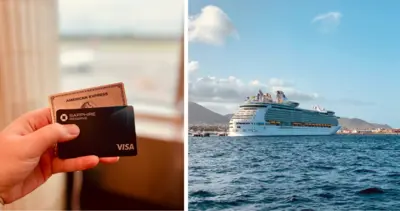
But, even the most loyal Royal Caribbean cruisers could find the redemption options to be limited. Honestly, the benefits from this no-annual-fee credit card are lackluster, at best.
Here is what you need to know about the credit card, along with some pros and cons that could make the Royal Caribbean credit card right (or wrong) for you.
The Royal Caribbean Visa Signature credit card has no annual fee and no foreign transaction fees

One of the biggest advantages of having the Royal Caribbean Visa Signature card is that you won’t be paying an annual fee. When you have an annual fee on a credit card, you want to ensure you are getting your money’s worth each year with the benefits offered.
With the Royal Caribbean Visa Signature card, you won’t need to justify the card's cost. Anything you redeem from the card can be worthwhile from this perspective.
Another advantage of the Royal Caribbean credit card is the fact that it has no foreign transaction fees. If you travel internationally, it’s important to have a credit card that does not charge you for foreign transaction fees. Without this, you will be paying a small fee on every foreign purchase - and it can add up on international travels.
Having a Visa credit card is also recommended for international travel, as American Express and Discover credit cards are not as widely accepted outside of the United States. Visa is the most commonly accepted credit card around the world, along with MasterCard. So, this is considered a pro for the credit card.
Read more: 11 cruise fees you should know about before booking
With the Royal Caribbean Visa Signature, you’ll earn reward points called MyCruise points
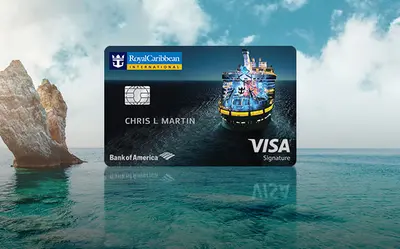
When it comes to everyday spending, you’ll earn the following rates with qualifying purchases:
- For every $1 spent on Royal Caribbean, Celebrity Cruises, or Silversea, you’ll earn 2 MyCruise points
- For every $1 on all other purchases, you’ll earn 1 MyCruise point
For example, if you spend $2,000 on a Royal Caribbean cruise, you will earn 4,000 MyCruise points. If you are not spending frequently with either cruise line, it will take you much longer to accrue enough points for a worthwhile reward.
Generally speaking, this is not a great earning structure for a travel credit card. Unless you spend a good chunk of change with Royal Caribbean or Celebrity Cruises exclusively, you’ll pretty much be earning 1 point per $1 spent.
Currently, Royal Caribbean is offering a sign-up bonus of 30,000 MyCruise points for new cardholders

As with most credit cards, you’ll earn a sign-up bonus if you reach a minimum spending threshold within the first few months of having your new credit card.
Royal Caribbean is currently advertising a sign-up bonus of 30,000 MyCruise points after spending $1,000 or more on purchases within 90 days of opening your new account. This is considered a limited time online offer, so you will want to act fast if you are thinking of signing up for Royal Caribbean’s credit card.
Those with an upcoming Royal Caribbean cruise could benefit from this the most, as the 30,000 bonus points can be redeemed for $300 onboard credit, stateroom upgrades and more, according to the cruise line’s website. You’ll want to make sure you can spend $1,000 on the new card to earn the points before planning to redeem for your cruise.

The typical welcome offer is 10,000 MyCruise points, although you only need to make one qualifying purchase within 90 days to earn these bonus points. Therefore, it is a better time than most to open the Royal Caribbean Visa Signature card.
You’ll also receive a $50 discount on Royal Caribbean’s Air2Sea program, but this is only redeemable after you’ve spent $3,500 in card purchases within 90 days of opening the credit card.
Rewards for MyCruise points can be used for onboard credit, stateroom upgrades, companion fares, cruise discounts and more

Generally speaking, you can redeem your MyCruise points at a rate of 1 cent for every 1 point; however, there are some redemption offers that will earn closer to 2 cents for every 1 point. The more points you earn, the more options you have to get the most bang for your buck.
If you earn the sign-up bonus of 30,000 MyCruise points, you can redeem these onboard your Royal Caribbean cruise for $300. As you earn more points, you can redeem more lucrative benefits.
Redemption for rewards start at 1,000 MyCruise points, in which you can donate the equivalent of $10 to World Wildlife Fund. This is a conservation fund that aims to protect the world’s oceans through sustainability efforts. More lucrative benefits start at 5,000 points, where you can start to request stateroom upgrades for short sailings and onboard credit (valued at $50) and Royal Caribbean robes, supposedly valued at $100.
Once you earn 75,000+ MyCruise points, you can request upgrades for 7-night sailings or utilize a companion cruise fare (valued up to $1,500 on a 5 to 7-night sailing). You can also request an upgrade on a 7-night European sailing (valued at $800) or a 7-night Alaska cruise ($1,200 value) for 75,000 points. These are all earning more than 1 cent per 1 MyCruise point, so any of these redemptions would be a solid use of your MyCruise points.
Read more: Royal Caribbean onboard credit: How to get it and where to spend it the smart way
MyCruise points can only be redeemed with Royal Caribbean, Celebrity Cruises, or Silversea with little flexibility

One of the biggest downsides to the Royal Caribbean Visa Signature card is that you have little flexibility for redeeming your MyCruise points.
To start, MyCruise points need to be redeemed at least 7 business days prior to boarding your cruise for the rewards to be applied. Should you forget to redeem your points prior to your embarkation, then you are out of luck, unfortunately.
Another limitation is that you can only earn a maximum of 540,000 MyCruise points. This is worth around $5,400 for most redemption options; while still a sizable amount, most travel credit cards do not cap your earning potential.
Finally, you should know that MyCruise points expire after five years. Again, this is fairly uncommon for travel cards. Most common travel credit cards do not accrue points that expire.
Royal Caribbean’s Visa Signature card has a high APR, with no introductory rate, so carrying balances on your card can be expensive
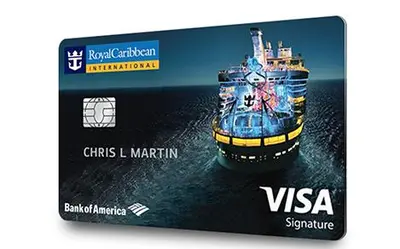
Of course, it’s best to pay your statement balance in full each month to avoid interest-rate charges. But, should you carry a balance on your Royal Caribbean Visa Signature card, you’ll be looking at an ongoing APR between 18.24%-28.24% (this is variable, but based on September 2023 rates).
In general, this APR is higher than the average interest-rate charges that you will find for credit cards that incur interest. So, this is something to heavily consider if you plan to carry a balance.
Compared to other credit cards, Investopedia rates the Royal Caribbean Signature Visa an overall score of 2.9 out of 5 stars

Investopedia reviewed the Royal Caribbean Visa Signature credit card and the card earned a lackluster score of 2.9/5 overall.
This score is based on low point-earning potential (only 1x points on non-Royal Caribbean purchases), high APR, limited redemption choices, and minimal benefits. But, the card earned praise for having no annual fee and providing a decent sign-up bonus, currently worth $250.
The general consensus of the review found that you’d need to be frequently spending money with Royal Caribbean to make the card worthwhile because the most lucrative redemption options come from the higher point tiers. You’ll need to be spending a big chunk of change with Royal Caribbean - likely near $37,500 - to start earning the best redemption options. For example, companion fares only appear as a reward options once you've earned 75,000 MyCruise points.
However, the sign-up bonus right now with 25,000 bonus MyCruise points could help you get to those higher thresholds quicker.
All other purchases only earn 1 MyCruise point per $1 spent, which is likely not worthwhile compared to other travel credit cards out there. You are also capped at 540,000 MyCruise points and points expire after 5 years.
Reviews are mixed on whether the Royal Caribbean Visa Signature card is worth it, according to our site’s readers
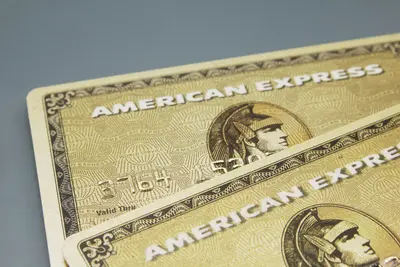
Here on Royal Caribbean Blog, some of our readers have posed the question to others about whether the Royal Caribbean credit card is a good choice. As with most financial decisions, the credit card is a better fit for some than others.
User Steverk asked “Royal Caribbean credit card… Is it a good deal?”
As you can imagine, he received a myriad of responses from many who have the Royal Caribbean Visa Signature credit card and those who prefer other cards. One response from smokeybandit said, “RC's card is probably one of the worst out there for accumulating points.”
However, another user, waaaytooo, responded, “We just cashed in $1,650 in OBC (and there is still $300 more for another cruise to use later) for our upcoming cruise. For our strategy of accumulating points for onboard credit, this card is great.”
Another interesting response was from Adam Brian Dada, who claims that he prefers the card for one simple reason: redeeming points for onboard credit. If he needs to reprice an excursion or drink package, the onboard credit is available immediately compared to waiting for credit card refunds.
One user, Peter D, says he has the Royal Caribbean credit card but barely uses it. He shares, "I have the BofA Royal Caribbean card, but rarely use it, even for RCL travel. It might be worth getting it for the first bonus points, but the card does not really have many other good perks.”
While some have found the Royal Caribbean credit card valuable, others find other credit cards more worthwhile.
Read more: Crown and Anchor Society loyalty program info, tips and secrets
You’ll need to weigh the pros and cons of the Royal Caribbean Visa Signature if it's worthwhile for you

The Royal Caribbean Visa Signature credit card could be most valuable for those who cruise often - and exclusively - with Royal Caribbean. This is the only time you earn 2x points with the Royal Caribbean credit card, so it’s your best bet for earning MyCruise points and rewards.
Generally speaking, you can probably find a better travel credit that fits not only your travel spending, but also everyday purchases.
Having no annual fee makes the decision a little easier, as you won’t need to evaluate whether the benefits are worth the cost of the card. The current sign-on bonus promotion is also a nice perk, although Royal Caribbean Blog readers have reported seeing higher welcome bonuses onboard cruises.
You’ll need to do a lot of spending though with Royal Caribbean to earn enough points to redeem the most lucrative benefits. For example, you need at least 75,000 points to earn a companion fare (or BOGO cruise, essentially).
However, the card’s major downfall is earning just 1 point per $1 spent on all other purchases. You are probably better off pursuing a different credit card that rewards you for also making purchases at restaurants, grocery stores, and general travel expenses.
One example is the Wells Fargo Autograph Visa credit card, which has no annual fee, and you’ll earn 3x points on restaurants, travel, gas, transit, streaming services, and even your cell phone plan. Points can be redeemed for travel, gift cards, and statement credits. You also receive some other benefits, such as cell phone protection. Roadside dispatch, travel service assistance, and auto rental collision damage waiver.
If you are willing to pay for an annual fee, you have some great travel credit card options to consider
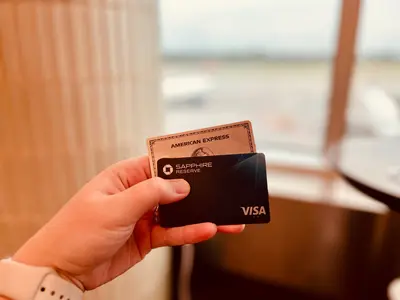
Even a small annual fee on a credit card can unlock better benefits and higher earning potential with points and rewards. These credit cards also earn more points for everyday purchases, allowing you to earn more points than you’d receive with the Royal Caribbean Visa Signature card.
One of the best travel credit cards out there continues to be the Chase Sapphire Preferred card. This card only has an annual fee of $95, but you’ll earn 60,000 bonus sign-up points when applying - this is worth $750 when redeemed through the Chase travel portal. You earn 2x points on travel, 3x points on dining, 3x points on streaming services. Even better, you get basic built-in travel insurance for things like trip cancellations, baggage delays, and trip delays.
At a slightly higher fee, you could also consider the American Express Green Card with an annual fee of $150. You’ll earn 3x points on all travel, transit, and restaurants. Currently, the card has a 40,000 sign-up bonus for new cardholders, which is valued at around $600 when redeemed for travel. Similar to the Chase Preferred, you also receive basic, built-in travel insurance for trip delays, baggage insurance, and rental car loss/damage insurance.
Of course, these are just two popular travel credit cards. There are hundreds of options available, so it’s important to understand where you spend your money most and how you prefer to earn and redeem your points.







